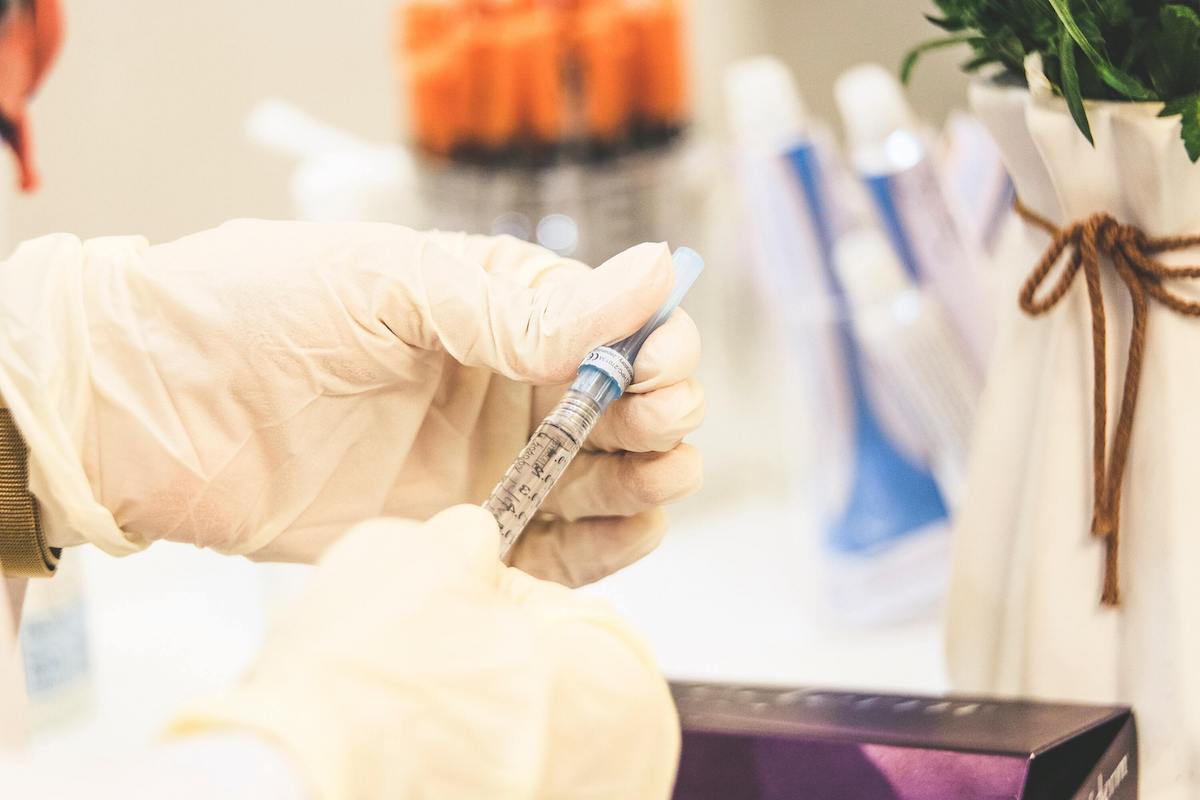Channels
Special Offers & Promotions
Achieving net-zero medicine through innovation

How the laboratory industry can tackle carbon emissions when developing drugs
At the start of July 2022, The NHS became the first health system to embed net zero into legislation. However, its goal of achieving net zero by 2040 is challenging when every stage of the pharmaceutical supply chain has a carbon footprint, from packaging pills to active pharmaceutical ingredient (API) development. Here Aleiya Lonsdale, Head of Event, at the UK’s largest laboratory trade show Lab Innovations, explains how pharmaceutical companies in the UK can do their part to help reach this goal.
To identify the best route towards net-zero emissions, the NHS established an NHS Net Zero Expert Panel, which reviewed around 600 pieces of evidence and used it to conduct extensive analysis and modelling. Two targets were created as a result of this analysis. For the emissions that the NHS controls directly (the NHS carbon footprint), the aim is to reach net zero by 2040 with an ambition to reach an 80 per cent reduction by 2028-2032. For emissions that the NHS influences (the NHS carbon footprint plus), the aim is to reach net zero by 2045 with an ambition to reach an 80 per cent reduction by 2036-2039.
One suggestion the NHS has made in it’s Delivering a ‘Net Zero’ National Health Service report is to focus on interventions in medicine, which accounts for 25 per cent of emissions within the NHS. These emissions are primarily caused by anesthetic gases (2 per cent of emissions) and inhalers (3 per cent of emissions) that occur at the point of use. The remaining 20 per cent of emissions were found within the supply chain from manufacturing to transportation.
How can we make medicine more sustainable?
One way that pharmaceutical companies are trying to de-carbonise is through developing low carbon inhalers. Most emissions from inhalers come from the propellant in metered-dose inhalers, rather than the gas itself. 45 per cent of GSK’s total carbon emissions are a result of metered-dose inhalers. To tackle this, GSK has started an initiative to find a more environmentally friendly propellant alternative. One of these propellants that is currently in preclinical testing, is anticipated to reduce inhaler related emissions by up to 90 per cent.
Drug formulation also has an impact on carbon emissions, particularly when it comes to how a drug needs to be stored. For example, during COVID-19, Pfizer-BioNTech and Moderna both used similar mRNA technology. However, Pfizer’s vaccine needed to be stored at a much lower temperature, between -80 degrees Celsius and -60 degrees Celsius, while Moderna’s vaccine could be stored in a standard freezer, which kept the vaccine at -25 degrees Celsius to -15 degrees Celsius. When a drug is formulated so it can be stored at a closer ambient temperature, it reduces the amount of energy required to keep it stable in the long term, reducing carbon emissions.
Finally, organisations like My Green Lab and Green Light Laboratories have been created to help laboratories improve their environmental impact by reducing energy consumption and reliance on single-use plastics. One method of achieving this is through the My Green Lab Certification. By asking 50 per cent of people within a lab to complete a survey, My Green Lab can discern what priorities need to be made to improve a labs sustainability. Solutions as a result of the survey could include changing suppliers, changing the set points of freezers or simply turning off equipment when not in use.
De-carbonising medicine not only benefits the planet, but is also a preventative form of healthcare. The health effects of climate change include heat-stroke, asthma, malnutrition and many more. To discover other sustainable innovations in the laboratory industry, you can register to visit Lab Innovations 2022 on November 2 and 3.
Lab Innovations has fast become the UK’s must-attend event for the entire laboratory industry. Supported by some of the UK’s top science institutions, it is a key event for powering the business of science.
The show floor is bursting with innovations from more than 160 leading scientific suppliers and manufacturers showcasing the latest laboratory developments and equipment. Exhibitors present the most cutting-edge technology applicable to a plethora of industries including life sciences, pharmaceuticals, academia, healthcare, chemical, food & drink, cleanroom and more.
Easyfairs organises and hosts events, bringing communities together to visit the future.
We currently organise 200 face-to-face events in 14 countries (Algeria, Belgium, Denmark, Finland, France, Germany, Italy, the Netherlands, Norway, Portugal, Spain, Sweden, Switzerland and the United Kingdom) and manage eight event venues in Belgium, the Netherlands and Sweden (Antwerp, Ghent, Mechelen-Brussels North, Namur, Gorinchem, Hardenberg, Malmö and Stockholm).
We are passionate about “easifying” the life of our customers and increasing the return on investment and return on time for professional communities through our all-in formulas, advanced technology and customer-centric approach. Our digital features and initiatives provide these communities with excellent opportunities to network effectively and do business throughout the year. We listen carefully to create compelling online formats that meet their constantly evolving needs.
The Easyfairs Group employs 700 highly committed talents, deploys the best marketing and technology tools, and develops brands with a strong appeal to our stakeholder communities.
In 2018 Easyfairs was named Belgium’s “Entrepreneur of the Year®” and a “Great Place to Work”. For the fourth year running, Deloitte conferred “Best Managed Company” status on Easyfairs in 2022.
The company is ranked 17th in the list of the world’s leading exhibition companies.
Media Partners


